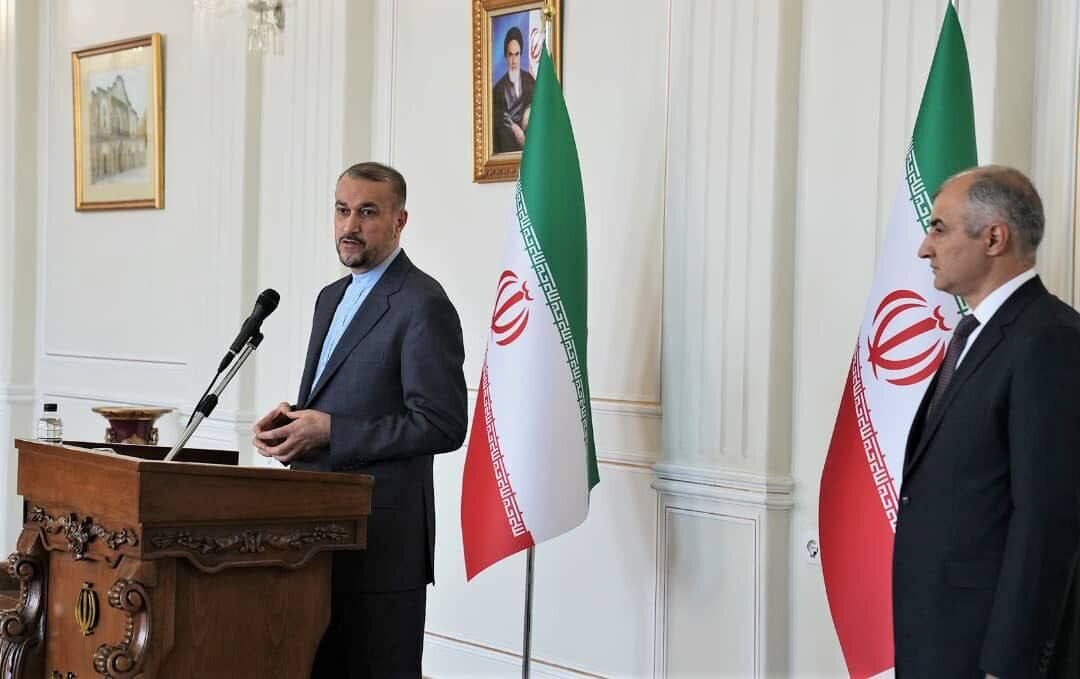Tehran says welcomes restoration of ties with Egypt, Morocco

TEHRAN – Iranian Foreign Minister Hossein Amir Abdollahian said on Thursday that Tehran welcomes good relationship with Egypt and Morocco as two Muslim states while expressing his country’s unhappiness the ongoing civil war in Sudan.
Amir Abdollahian made the remarks as he addressed a gathering of ambassadors from Islamic countries on the occasion of Eid al-Adha (Feast of Sacrifice).
Amir Abdollahian also pointed to the message and spiritual aspects of Hajj, saying, “Hajj provides us diplomats with an opportunity to pay special attention to issues relevant to the Islamic world, including the unity of the Islamic Ummah, by utilizing the Ibrahimic Hajj opportunity more than ever before.”
The comments by the foreign minister come as more than 1.8 million people are taking part in the first unrestricted Hajj pilgrimage in Saudi Arabia since the Covid-19 pandemic struck in 2020.
The foreign minister added, “We are pleased that the Ibrahimic Hajj provides a platform for meetings and discussions among Islamic scholars, Muslim men and women, and youth, enabling us to better understand international conditions, the transitioning global order, and pay attention to issues in the Islamic world.”
He further stated: One of the foreign policy priorities of Ayatollah Raisi's government is special attention to relations with the Islamic world and regional countries.”
The Raisi administration has declared that developing ties with neighbors, regional states and Muslim states is a foreign policy priority. In line with this policy Tehran and Riyadh have restored diplomatic ties which were in 2016.
“We are delighted that in recent months, we have been able to restore the normal state of diplomatic relations between the Kingdom of Saudi Arabia and the Islamic Republic of Iran through diplomacy and negotiations. We also welcome the development of relations and the normalization of ties with other regional and global Islamic countries, including the Arab Republic of Egypt and the Muslim and brotherly country of Morocco, and within this framework, we express our concern about the crisis and the outbreak of internal war in Sudan,” the chief diplomat remarked.
Elsewhere in his remarks, the foreign minister said the foes have engineered plots to create division among Muslim nations.
For example, he said, “What happened in Afghanistan, Iraq, and Syria in recent years is part of the enemies' plan against the Islamic Ummah and Islamic countries.”
The top diplomat said all Muslim nations must work hard to thwart the conspiracies by enemies against Islam.
He added the Zionists are working relentlessly to create division among Islamic countries.
The foreign minister went on to say that the Palestinian issues is “still the main concern and priority of the Islamic world.”
Amir Abdollahian said he and his Saudi counterpart Prince Faisal bin Farhan al-Saud exchanged views about the Palestinian crisis when the Saudi foreign minister made a visit to Tehran on June 17.
“In the conversation we had with the foreign minister of Saudi Arabia, we agreed that the Islamic world should still consider the Palestinian issue as its main concern, be aware of the actions of the apartheid regime of Israel, and prevent the weakening of Palestine,” Iran’s chief diplomat remarked.
The minister told the ambassadors of Muslim nations that Iran and Saudi Arabia as two important countries, along with other Islamic nations that play a role in the region and the larger world, should continue to “support the oppressed people of Palestine with a stronger and more effective voice.”
Leave a Comment